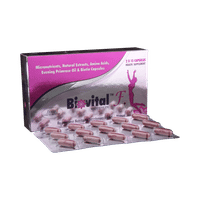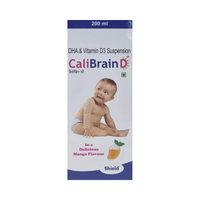Rs.69for 1 strip(s) (10 tablet er each)
food interaction for Buproban Tablet ER
alcohol interaction for Buproban Tablet ER
pregnancy interaction for Buproban Tablet ER
lactation interaction for Buproban Tablet ER
food
alcohol
pregnancy
lactation
Buproban 150mg Tablet ER may be taken with or without food.
None
None
CAUTION
It is not known whether it is safe to consume alcohol with Buproban 150mg Tablet ER. Please consult your doctor.
CONSULT YOUR DOCTOR
Buproban 150mg Tablet ER is not recommended during pregnancy as there is positive evidence of fetal risk based on animal studies. However, it may still be prescribed by a doctor in situations where the benefits outweigh the risks.
CONSULT YOUR DOCTOR
Buproban 150mg Tablet ER may be unsafe to use during breastfeeding. Limited human data suggests that the drug may pass into the breastmilk and harm the baby. It should be used only if the expected benefit outweighs the potential risk. Please consult your doctor.
CONSULT YOUR DOCTOR
SALT INFORMATION FOR Buproban 150mg Tablet ER
Bupropion(150mg)
Buproban tablet er uses
{med_name} is used in the treatment of depression and smoking addiction.
How buproban tablet er works
Buproban 150mg Tablet ER works in depression by increasing the levels of chemical messengers in the brain that helps in regulating mood.
The mechanism underlying its use in smoking addiction are not fully understood.
Common side effects of buproban tablet er
Insomnia (difficulty in sleeping), Allergic reaction, Impaired concentration, Sweating, Headache, Nausea, Vomiting, Dizziness, Dryness in mouth, Taste change, Abdominal pain, Agitation, Anxiety, Fever, Constipation, Tremors
SUBSTITUTES FOR Buproban Tablet ER
18 Substitutes
18 Substitutes
Sorted By
 Rs. 176.25pay 151% more per Tablet ER
Rs. 176.25pay 151% more per Tablet ER Rs. 157.27pay 128% more per Tablet ER
Rs. 157.27pay 128% more per Tablet ER Rs. 186.56pay 165% more per Tablet ER
Rs. 186.56pay 165% more per Tablet ER Rs. 115.62pay 64% more per Tablet ER
Rs. 115.62pay 64% more per Tablet ER Rs. 60.57save 14% more per Tablet ER
Rs. 60.57save 14% more per Tablet ER
Expert advice FOR Buproban Tablet ER
- You have been prescribed Bupropion for the treatment of depression.
- It can also help you quit smoking.
- Take it in the morning to avoid difficulty sleeping later that night.
- It causes fewer side effects as compared to other anti-depression medications.
- Stop taking Bupropion and inform your doctor if you notice sudden mood and behavior changes or develop suicidal thoughts.
- Inform your doctor if you have a history of seizure disorder, eating disorder, or if you drink alcohol.
Frequently asked questions FOR Buproban 150mg Tablet ER
Bupropion
Q. Does Buproban 150mg Tablet ER help with anxiety and sleeplessness?
No, Buproban 150mg Tablet ER should not be used for anxiety or sleeplessness. Instead, it may worsen anxiety. In fact, two of the common side effects are anxiety and sleeplessness. It is because of this that your doctor may even advise you not to take Buproban 150mg Tablet ER too close to bedtime.
Q. Is Buproban 150mg Tablet ER addictive?
If Buproban 150mg Tablet ER is taken in the correct dose, for the correct duration, and in the correct way as advised by the doctor, then there is no risk of addiction. However, if more than the recommended dose is taken or if the tablets are crushed and inhaled, then abuse potential and addiction are likely.
Q. What are the factors that can increase chances of seizures with Buproban 150mg Tablet ER?
The risk of seizure appears to be strongly associated with the dose of Buproban 150mg Tablet ER. Increasing your dose of Buproban 150mg Tablet ER may increase the risk. The risk of seizure increases with regular intake of alcohol, diabetes, serious head injury or history of head trauma, previous seizures, central nervous system tumor or infection, or addiction to cocaine, opiates, or stimulants. The risk also increases with simultaneous use of medicines to treat psychosis or depression, theophylline and oral corticosteroids, or if you are taking medicines that cause loss of appetite (anorectics).






















